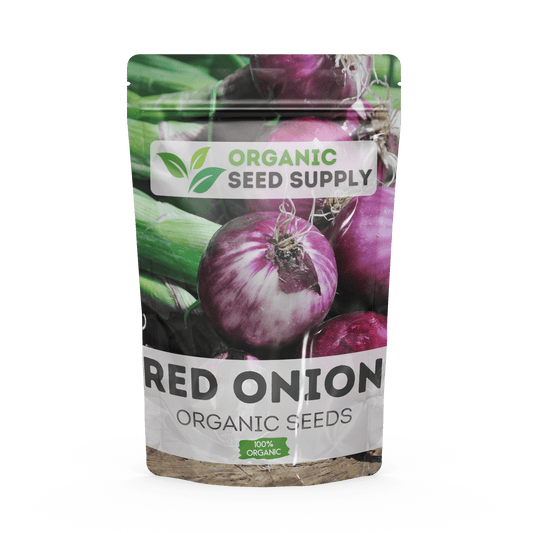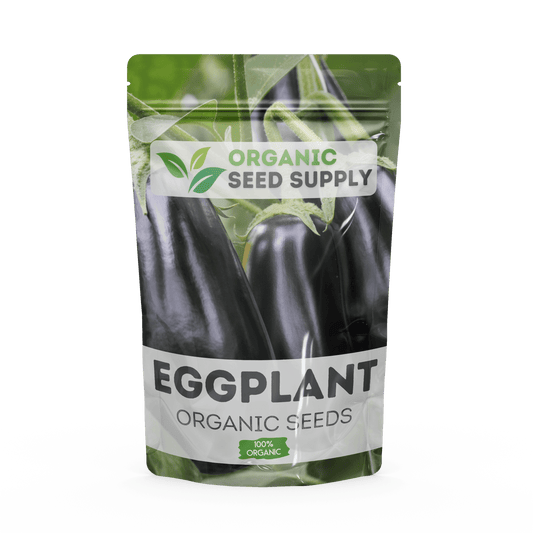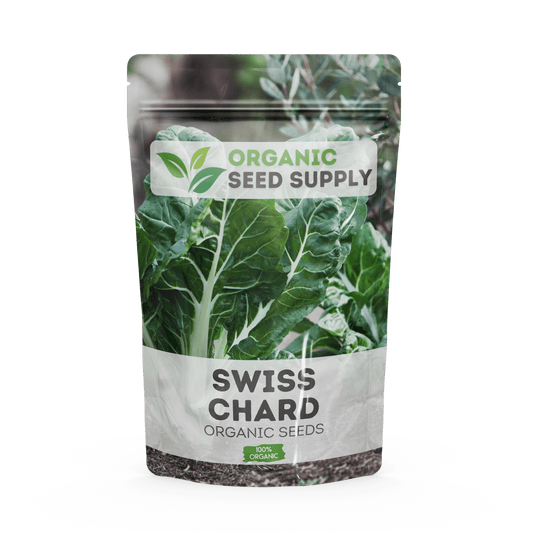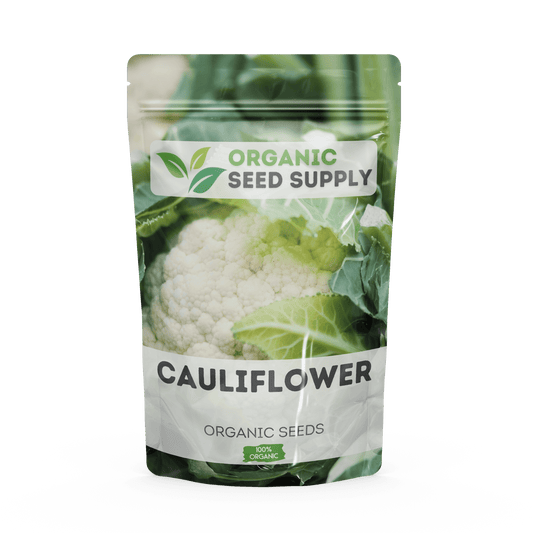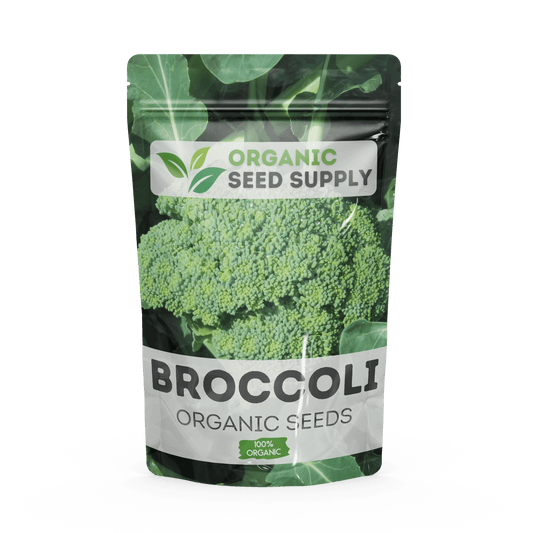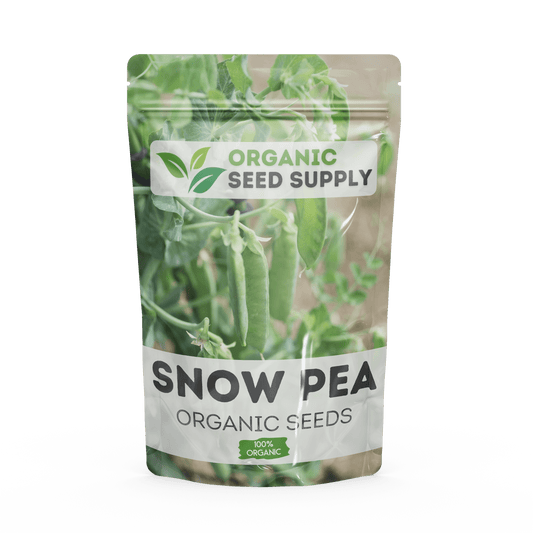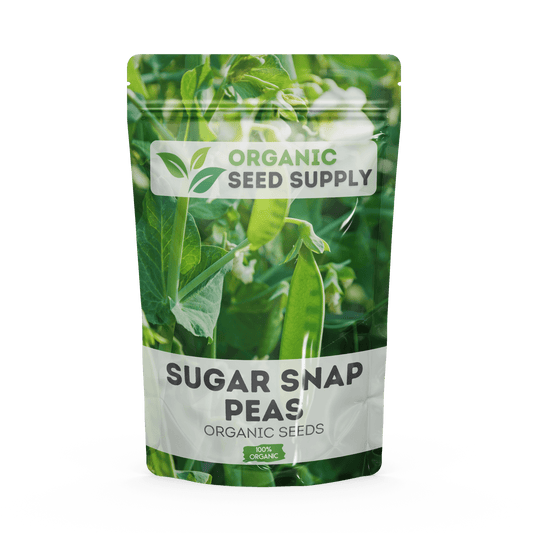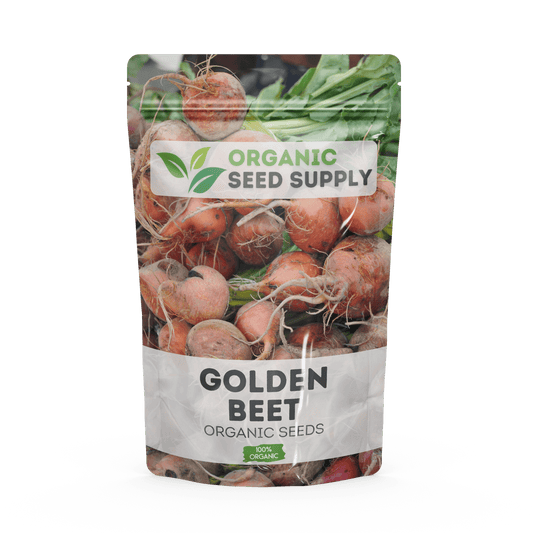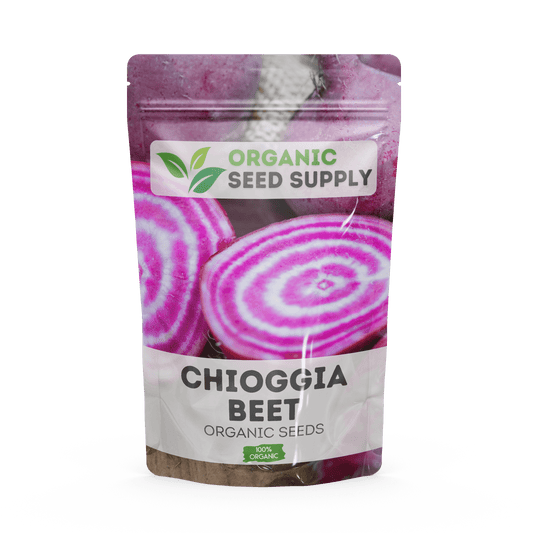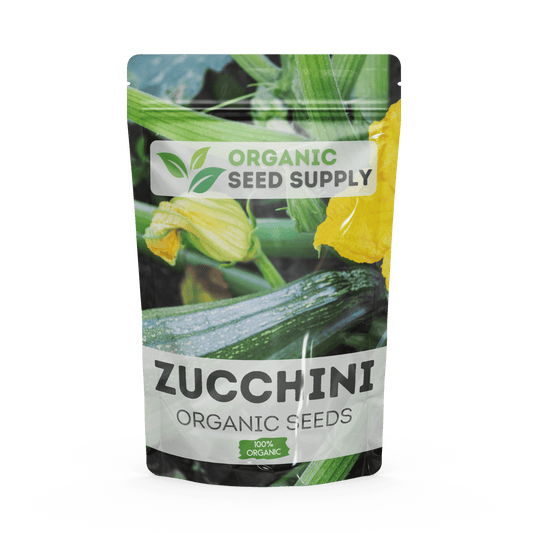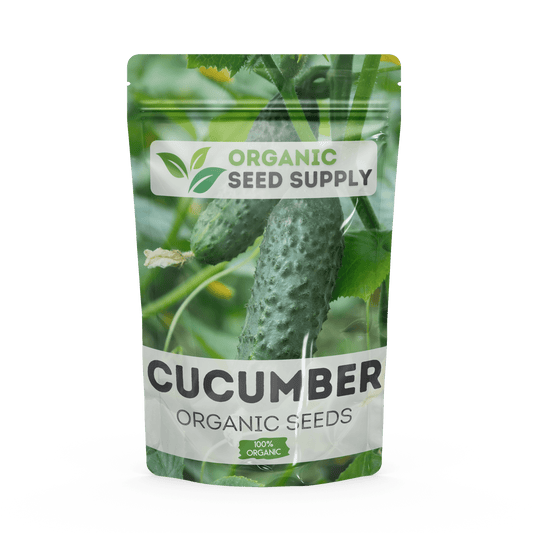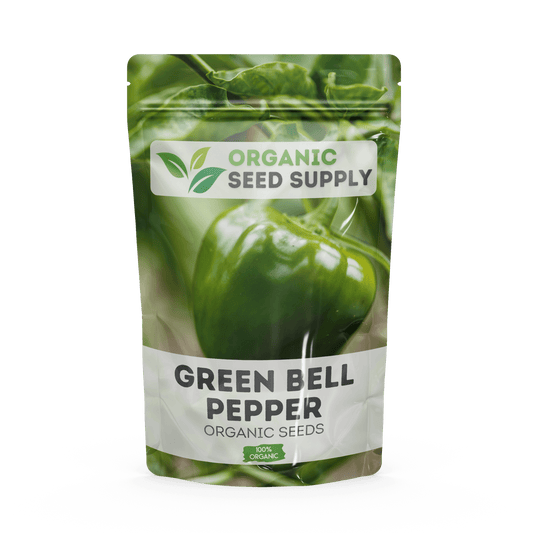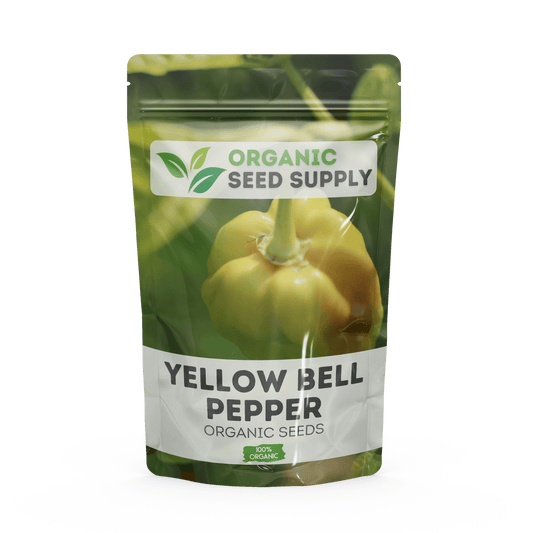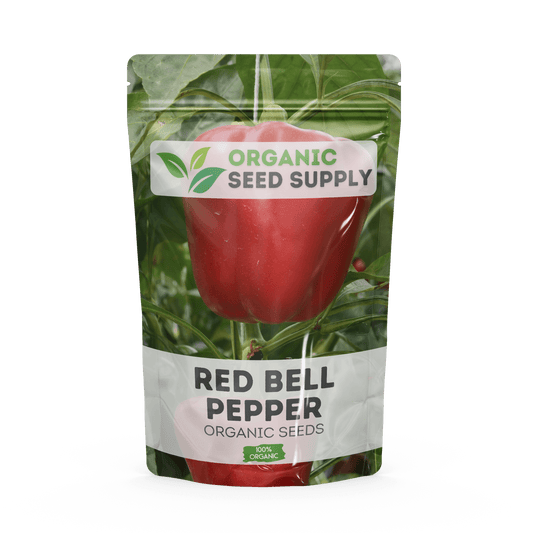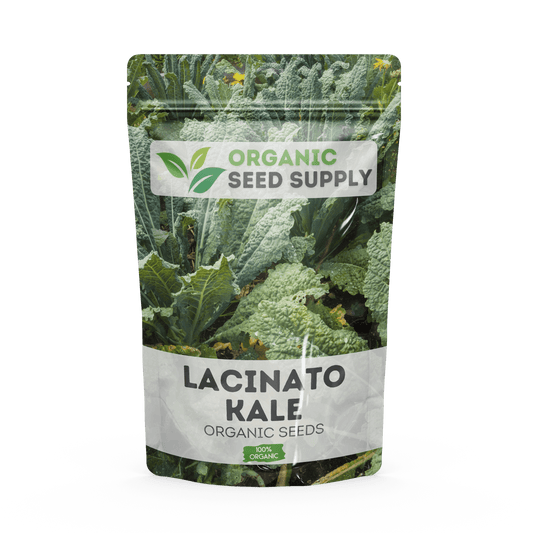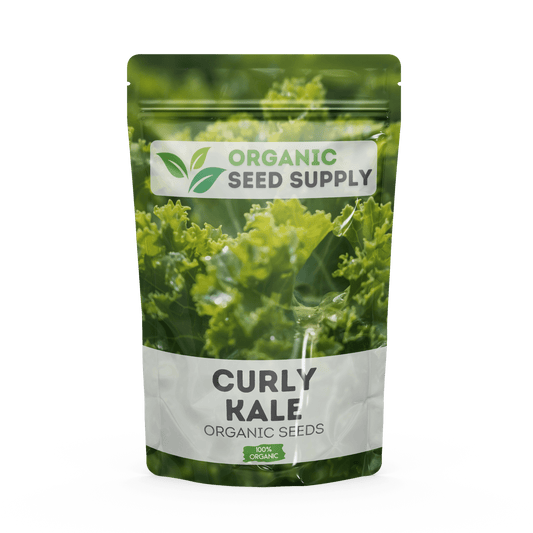-
Organic Red Onion Seeds
Regular price From $7.95 USDRegular priceUnit price per -
Organic Eggplant Seeds
Regular price From $7.95 USDRegular priceUnit price per -
Organic Swiss Chard Seeds
Regular price From $7.95 USDRegular priceUnit price per -
Organic Cauliflower Seeds
Regular price From $7.95 USDRegular priceUnit price per -
Organic Broccoli Seeds
Regular price From $7.95 USDRegular priceUnit price per -
Organic Snow Pea Seeds
Regular price From $7.95 USDRegular priceUnit price per -
Organic Sugar Snap Pea Seeds
Regular price From $7.95 USDRegular priceUnit price per -
Organic Golden Beet Seeds
Regular price From $7.95 USDRegular priceUnit price per -
Organic Chioggia Beet Seeds
Regular price From $7.95 USDRegular priceUnit price per -
Organic Zucchini Seeds
Regular price From $7.95 USDRegular priceUnit price per -
Organic Cucumber Seeds
Regular price From $7.95 USDRegular priceUnit price per -
Organic Green Bell Pepper Seeds
Regular price From $7.95 USDRegular priceUnit price per -
Organic Yellow Bell Pepper Seeds
Regular price From $7.95 USDRegular priceUnit price per -
Organic Red Bell Pepper Seeds
Regular price From $7.95 USDRegular priceUnit price per -
Organic Lacinato Kale Seeds
Regular price From $7.95 USDRegular priceUnit price per -
Organic Curly Kale Seeds
Regular price From $7.95 USDRegular priceUnit price per
Shop Organic Vegetable Seeds
Organic vegetable seeds provide gardeners with the foundation for growing food that's free from synthetic pesticides and fertilizers.
These seeds come from plants that have been cultivated according to organic farming standards, which aim to promote ecological balance and conserve biodiversity.
They offer a sustainable option for home gardeners and commercial farmers alike, allowing for the production of wholesome and nutritious vegetables that support a healthy diet and environment.
| Shop Peppers | Shop Root Vegetables | |
Benefits of Growing Organic Vegetables
Growing organic vegetables has tangible advantages for both personal health and the environment. Each benefit stems from practices that prioritize natural processes and cultivation methods.
Nutritional Value
Organic vegetables are renowned for their nutrient-rich profiles. They are often higher in certain vitamins and minerals due to the soil's improved health from organic farming practices.
Environmental Impact
They significantly decrease the environmental footprint of agriculture. Organic farming conserves water, increases soil fertility, and reduces soil erosion.
It also helps reduce pollution because organic farms avoid synthetic pesticides and fertilizers, which can lead to pesticide drift and water contamination.
Flavor Profiles
Connoisseurs often praise organic vegetables for their robust flavors. Without the use of artificial growth stimulants, organic vegetables develop their flavors more naturally during growth, resulting in a purer, often more intense flavor profile.
This is especially noticeable in heirloom varieties that have been preserved for their taste characteristics.
Selecting Organic Vegetable Seeds
Knowing how to select the right seeds is crucial. It starts with an understanding of the differences between heirloom and hybrid seeds and accounting for the growing season.
Heirloom vs Hybrid Seeds
Heirloom seeds represent traditional varieties that have been passed down through generations. They are known for their consistent quality over time, rich flavor, and ability to retain their characteristics through seed saving.
Gardeners choose heirloom seeds to preserve biodiversity and for crops that will produce seeds for future plantings.
In contrast, hybrid seeds are the result of cross-pollinating two different, but related, plant varieties. The aim is to produce a plant that contains the best traits of both parent plants, such as disease resistance, larger yields, or improved hardiness.
However, hybrid seeds do not usually produce true-to-type plants in subsequent generations.
Seasonal Considerations
Timing is everything in gardening, and that includes when to plant which organic vegetable seeds. Here's a quick guide:
- Spring: Cool-season crops including lettuce, peas, and spinach can be sown as soon as the soil can be worked.
- Summer: Warm-season crops like tomatoes, peppers, and cucumbers prefer warm soil and air temperatures.
- Fall: Late-season plantings of cool-season crops should be timed to mature before the first frost date.
Knowing one's local climate and the seed variety's specific needs is essential for successful organic gardening.
Frequently Asked Questions
What are the benefits of using organic seeds for my garden?
Organic seeds come from plants that have been grown following strict agricultural standards, which aim to preserve soil health, water quality, and biodiversity.
They tend to be more resilient to pests and diseases when grown organically, reducing the need for synthetic chemicals.
How can I ensure the organic vegetable seeds I purchase are truly non-GMO?
To ensure your seeds are non-GMO, look for the Non-GMO Project Verified seal or certified organic labels on packaging, which prohibit GMOs by definition. These certifications provide assurance that the seeds have been produced without genetic engineering.
What should I look for when choosing a reputable organic vegetable seed supplier?
When choosing a reputable supplier, check for certifications like the USDA Organic label or regional equivalents, which indicate compliance with organic standards. Research the company’s reputation and read reviews for insights into their product quality and customer service.
How do I find the best varieties of organic vegetable seeds suitable for my local climate?
Research plant varieties known to thrive in your region's climate. Consult local cooperative extension services or reputable gardening guides.
Can I save seeds from organic vegetables and still maintain organic status for the next crop?
Yes, seeds saved from your organic vegetables can maintain organic status if the parent plants were grown following organic practices. However, the process of saving seeds should also adhere to organic methods.
What are the differences in germination rates between organic and conventional vegetable seeds?
There are no inherent differences in germination rates between organic and conventional seeds. Germination can be affected by various factors including seed viability, storage conditions, and planting practices rather than organic or conventional status.
Check Out These Resources
Our Organic Promise
For seeds to be marketed as organic, they must adhere to specific regulations and standards set by certifying bodies. These standards ensure the organic integrity of the seeds from cultivation to consumer.
The USDA Certified Organic label on our products indicate that the seeds have been produced through approved methods that integrate cultural, biological, and mechanical practices such as:
- No synthetic fertilizers and pesticides
- Soil and crop rotation practices
- Detailed record-keeping
We do these things to ensure compliance with the USDA organic regulations.

